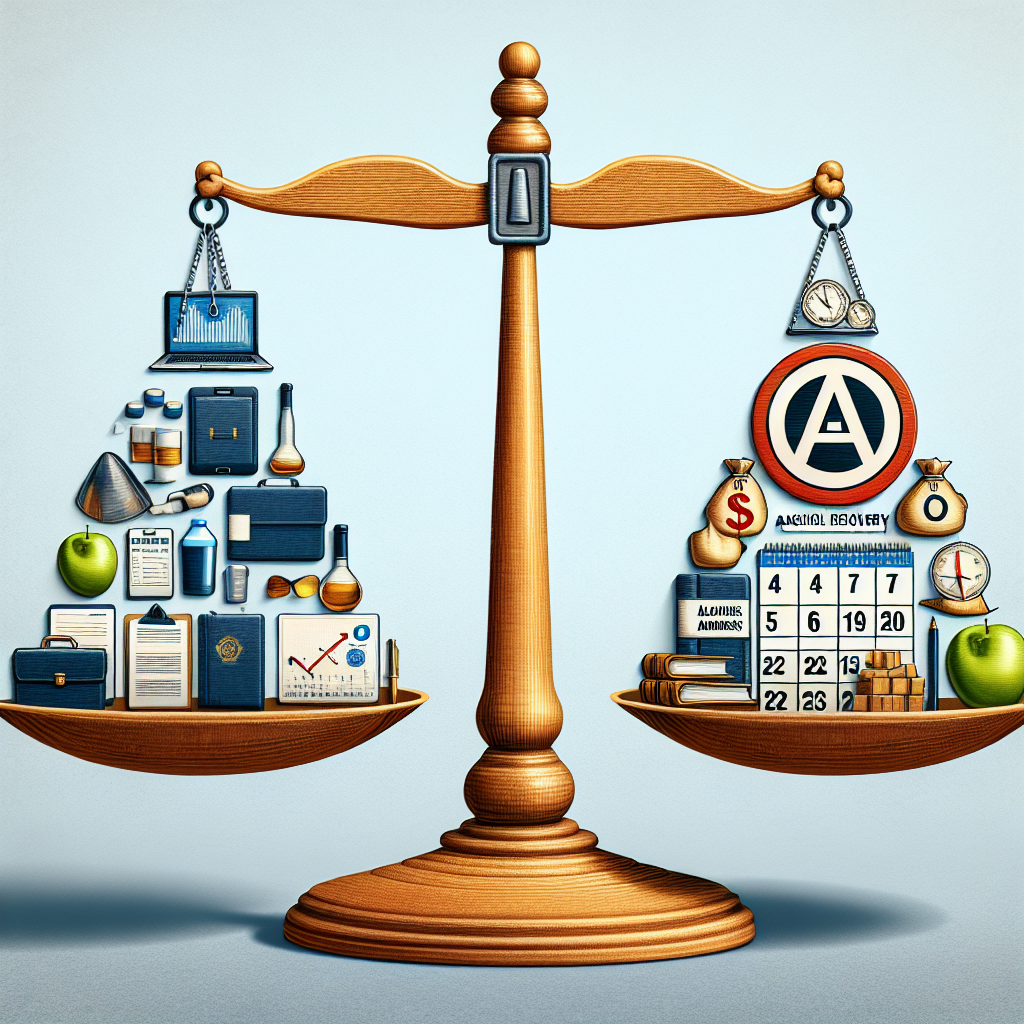-
Table of Contents
“Integrated Healing: Addressing Co-Occurring Disorders in Cocaine Rehab, Madrid”
Introduction
Co-occurring disorders, also known as dual diagnosis, refer to the simultaneous presence of a substance use disorder and a mental health disorder. In the context of cocaine rehab in Madrid, addressing co-occurring disorders is crucial for effective treatment and long-term recovery. Cocaine addiction often exacerbates underlying mental health issues such as depression, anxiety, or bipolar disorder, making comprehensive care essential. Rehab centers in Madrid are increasingly adopting integrated treatment approaches that combine medical, psychological, and therapeutic interventions to address both the addiction and the mental health conditions concurrently. This holistic strategy aims to improve overall patient outcomes by ensuring that both aspects of the individual’s health are treated in a coordinated and cohesive manner.
Understanding The Challenges Of Treating Co-Occurring Disorders In Cocaine Rehab In Madrid
Understanding the challenges of treating co-occurring disorders in cocaine rehab in Madrid requires a comprehensive approach that addresses both the addiction and the accompanying mental health issues. Co-occurring disorders, also known as dual diagnosis, refer to the simultaneous presence of a substance use disorder and a mental health disorder. In the context of cocaine rehab, this dual challenge can complicate the recovery process, making it essential to adopt an integrated treatment strategy.
In Madrid, the prevalence of co-occurring disorders among individuals seeking cocaine rehab is significant. Many patients struggle with conditions such as depression, anxiety, bipolar disorder, or post-traumatic stress disorder (PTSD) alongside their addiction. These mental health issues can exacerbate the addiction, creating a vicious cycle that is difficult to break. Consequently, understanding the interplay between these disorders is crucial for effective treatment.
One of the primary challenges in treating co-occurring disorders in cocaine rehab is accurate diagnosis. Often, the symptoms of mental health disorders can be masked by the effects of cocaine use, making it difficult for healthcare professionals to identify the underlying issues. For instance, the euphoria and increased energy associated with cocaine use can mimic the manic phases of bipolar disorder, while the subsequent crash can resemble severe depression. Therefore, a thorough assessment by trained professionals is essential to distinguish between the effects of cocaine and the symptoms of a mental health disorder.
Once a dual diagnosis is established, the next challenge is developing a treatment plan that addresses both conditions simultaneously. Traditional rehab programs that focus solely on addiction may not be sufficient for individuals with co-occurring disorders. Instead, an integrated approach that combines addiction treatment with mental health care is necessary. This may involve a combination of medication, therapy, and support groups tailored to the individual’s specific needs.
In Madrid, several rehab centers have adopted this integrated approach, recognizing the importance of treating the whole person rather than just the addiction. These centers employ a multidisciplinary team of professionals, including psychiatrists, psychologists, addiction specialists, and social workers, to provide comprehensive care. By addressing both the addiction and the mental health disorder, these programs aim to improve the overall well-being of the patient and reduce the risk of relapse.
Another significant challenge in treating co-occurring disorders is the stigma associated with both addiction and mental health issues. In many cultures, including Spain, there is a tendency to view addiction as a moral failing rather than a medical condition. This stigma can prevent individuals from seeking help and can also affect the quality of care they receive. To combat this, it is essential to promote awareness and education about co-occurring disorders, emphasizing that they are treatable conditions that require professional intervention.
Despite these challenges, there is hope for individuals with co-occurring disorders in cocaine rehab in Madrid. Advances in medical research and a growing understanding of the complexities of addiction and mental health have led to more effective treatment options. Success stories from rehab centers in Madrid highlight the potential for recovery and the importance of a supportive and compassionate approach.
In conclusion, treating co-occurring disorders in cocaine rehab in Madrid presents unique challenges that require a multifaceted and integrated approach. Accurate diagnosis, comprehensive treatment plans, and efforts to reduce stigma are all crucial components of effective care. By addressing both the addiction and the mental health disorder, rehab centers in Madrid are helping individuals achieve lasting recovery and a better quality of life.
Effective Strategies For Managing Co-Occurring Disorders In Cocaine Rehab Centers In Madrid
In the bustling city of Madrid, the challenge of addressing co-occurring disorders in cocaine rehab centers is met with a blend of innovative strategies and compassionate care. Co-occurring disorders, also known as dual diagnosis, refer to the simultaneous presence of a substance use disorder and a mental health disorder. This complex interplay requires a multifaceted approach to treatment, one that recognizes the intricate relationship between mental health and addiction. In Madrid, rehab centers are pioneering effective strategies to manage these co-occurring disorders, offering hope and healing to those in need.
One of the most effective strategies employed by rehab centers in Madrid is the integration of comprehensive assessments. Upon admission, individuals undergo thorough evaluations to identify both their substance use and mental health issues. This holistic assessment is crucial as it lays the foundation for a personalized treatment plan. By understanding the unique challenges faced by each individual, clinicians can tailor interventions that address both the addiction and the underlying mental health conditions. This personalized approach ensures that treatment is not only effective but also sustainable in the long term.
Moreover, the use of evidence-based therapies is a cornerstone of managing co-occurring disorders in Madrid’s rehab centers. Cognitive-behavioral therapy (CBT) and dialectical behavior therapy (DBT) are among the most commonly employed modalities. These therapies are designed to help individuals understand the connections between their thoughts, emotions, and behaviors, thereby enabling them to develop healthier coping mechanisms. By addressing the root causes of both the addiction and the mental health disorder, these therapies empower individuals to make lasting changes in their lives.
In addition to individual therapy, group therapy plays a vital role in the treatment process. Group sessions provide a supportive environment where individuals can share their experiences and learn from others who are facing similar challenges. This sense of community fosters a feeling of belonging and reduces the isolation often associated with addiction and mental health disorders. Furthermore, group therapy encourages accountability and provides a platform for practicing new skills in a safe and supportive setting.
Another key strategy is the incorporation of medication-assisted treatment (MAT) when appropriate. For some individuals, medications can be an essential component of managing co-occurring disorders. Medications can help stabilize mood, reduce cravings, and address other symptoms of mental health disorders. When combined with therapy and other supportive measures, MAT can significantly enhance the effectiveness of the overall treatment plan.
Family involvement is also a critical element in the treatment of co-occurring disorders. Rehab centers in Madrid recognize that addiction and mental health issues do not exist in a vacuum; they affect the entire family system. By involving family members in the treatment process, rehab centers can provide education, support, and therapy to help families heal together. This holistic approach not only strengthens the individual’s recovery but also promotes healthier family dynamics.
Lastly, aftercare planning is an essential component of managing co-occurring disorders. Successful rehab centers in Madrid ensure that individuals have access to ongoing support and resources after completing their initial treatment. This may include continued therapy, support groups, and connections to community resources. By providing a robust aftercare plan, rehab centers help individuals maintain their progress and prevent relapse.
In conclusion, the effective management of co-occurring disorders in cocaine rehab centers in Madrid is achieved through a combination of comprehensive assessments, evidence-based therapies, group support, medication-assisted treatment, family involvement, and thorough aftercare planning. These strategies, grounded in compassion and innovation, offer a beacon of hope for individuals struggling with the dual challenges of addiction and mental health disorders. Through these efforts, rehab centers in Madrid are not only transforming lives but also inspiring a broader understanding of the importance of integrated care.
Q&A
1. **Question:** What are co-occurring disorders in the context of cocaine rehab in Madrid?
**Answer:** Co-occurring disorders, also known as dual diagnosis, refer to the simultaneous presence of a substance use disorder (such as cocaine addiction) and a mental health disorder (such as depression, anxiety, or bipolar disorder) in an individual undergoing rehab in Madrid.
2. **Question:** How are co-occurring disorders typically treated in cocaine rehab centers in Madrid?
**Answer:** Treatment for co-occurring disorders in cocaine rehab centers in Madrid typically involves an integrated approach that addresses both the substance use disorder and the mental health condition simultaneously. This may include a combination of medication, psychotherapy, behavioral therapies, and support groups.
Conclusion
Co-occurring disorders, also known as dual diagnosis, present a significant challenge in cocaine rehabilitation in Madrid. Effective treatment requires an integrated approach that addresses both the substance use disorder and the accompanying mental health issues. Comprehensive care plans that include medical, psychological, and social support are essential for successful recovery. The availability of specialized rehab centers in Madrid that focus on co-occurring disorders is crucial for improving outcomes and ensuring long-term sobriety and mental health stability for individuals affected by cocaine addiction.



